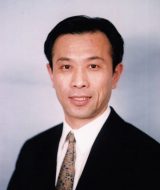- 05 Apr 2012
CHINA AND THE MIDDLE EAST: IMPLICATIONS OF A RISING POLITICAL AND ECONOMIC RELATIONSHIP
China’s growing role as a global political and economic power has according to many analysts pitched it as the Middle East’s new opponent to the United States. China, primarily dependant on market power, has built an economic strategy to create dependencies built around increasing market shares and securing raw materials, in particular oil. This astronomical economic expansion has put increasing pressures on its demands for oil, and the increasing instability of political and economic conditions in the Middles East are threatening to jeopardize Chinaʹs immediate development interests. Chinaʹs Middle East strategy involves collaboration with trading partners offering economic aid and political recognition, and its vetoing of the resolution against Syria, a measure it has only sparingly used in the UN Security Council, underscores the growing importance of Middle East stability to China.
This panel discussed the rising significant political and economic relations between China and the Middle East, the possibility of a shift from a traditional Western‐centric approach of Middle Eastern countries to a rapidly developing focus on the East, and the implications of this shift on the global political and financial structures.
About the Speakers

Dr. Abdulkhaleq Abdulla, a UAE national, is a professor of Political Science at United Emirates University. He is the chairman of the cultural committee at the Dubai Cultural and Scientific Association and a member of the Global Agenda Council on Population Growth. He was a member of the Dubai Cultural Council, the General Coordinator of the Gulf Development Forum, director of the research center at AlKhaleej newspaper, editor of the Gulf Strategic Report, editor of the Journal of Social Affairs and the lead author of the Arab Knowledge Report 2008. He holds PhD in Political science from Georgetown University and MA from American University in Washington D.C.

Dr. Bo Zhiyue is Senior Research Fellow at the East Asian Institute of the National University of Singapore. He obtained his Bachelor of Law and Master of Law from Peking University and Ph.D. from the University of Chicago. He has taught at Beijing University, Roosevelt University, the University of Chicago, American University, St. John Fisher College, Tarleton State University, and the Chinese University of Hong Kong. His research interests include Chinaʹs elite politics, Chinese provincial leaders, central‐local relations, and cross‐strait relations.

Professor Wu Bingbing is an Associate Professor in the Department of Arabic Language and Culture at Peking University. He was a visiting scholar in Kuwait University in 1997 and Damascus University in 2001, and received his Ph.D. in Arabic Language and Literature at Peking University in 2003. His research interests include Arab‐Islamic Culture, Shi’ite Islam, history of Islam, and contemporary Islamic issues. He is the author of the book The Rise of the Shi’i Modern Islamism (CASS Press, Beijing, 2004). Now he is a fellow of China Association of Middle East Studies and deputy general secretary of China Arabic Language Education Association.




